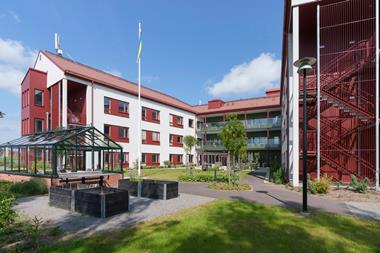Danish pension fund PFA is locked in negotiations with a Berlin public authority over its new ownership of several rental apartments, and could be forced to sell them to a local housing association if it fails to agree to certain terms.
Reiner Wild, chief executive of the Berlin Tenants‘ Association (Berliner Mieterverein), told IPE Real Assets: “The municipality of Neukölln (Bezirk Neukölln) is negotiating with PFA, and PFA now has until 7 January to reach an agreement allowing it to retain ownership of the buildings.”
While the talks are being conducted privately, he said conditions in such agreements could include a pledge not to redevelop the properties for 20 years, for example.
PFA declined to comment on the matter.
Alongside Hamburg and Munich, Berlin is one of three large German cities where — in certain residential areas designated as Environmental Protection Zones (Milieuschutzgebiete) — local housing associations (Städtische Wohnungsbaugesellschaften) have the legal option to buy tenanted buildings shortly after they have changed ownership in the private sector.
This is the case with the apartments which PFA bought this summer, located in Thiemannstraße 16 to 23 and in neighbouring Böhmischen Straße 21 to 23 in the up-and-coming southern Berlin district of Neukölln.
The assets form part of a huge deal made by the €80bn Danish institutional investor’ this summer, when it bought more than €1bn of German assets from Industria Wohnen.
PFA hired Domicil Real Estate Group to manage the portfolio, which consisted of one commercial building and 33 residential buildings across 15 locations in Germany.
The takeover of the apartments by the Danish pension fund caused uproar among residents when news spread just last month, with tenants launching a campaign group and supported by local politicians.
In a similar case in nearby Schöneberg in Berlin, PFA has recently won the right to retain ownership after agreeing certain conditions with the local authority there, Wild confirmed.
According to a report in the Berliner Morgenpost newspaper, tenants in the Thiemannstraße apartments are worried their flats — where rent levels are currently considered reasonable — could be transformed into expensive owner-occupied homes.
Even though the properties are in an environmental protection zone, the newspaper reported that regulations surrounding such areas in Germany were increasingly being circumvented.
Wild denied the level of protection the zoning gave was being eroded, but said rising real estate prices were making it harder for local housing associations to buy the assets.
“Also, the two-month period in which they can exercise the option to buy is very short,” he said.
However, it was better for tenants, according to Wild, if their building was owned by a local housing association rather than a private investor.












